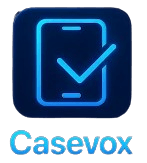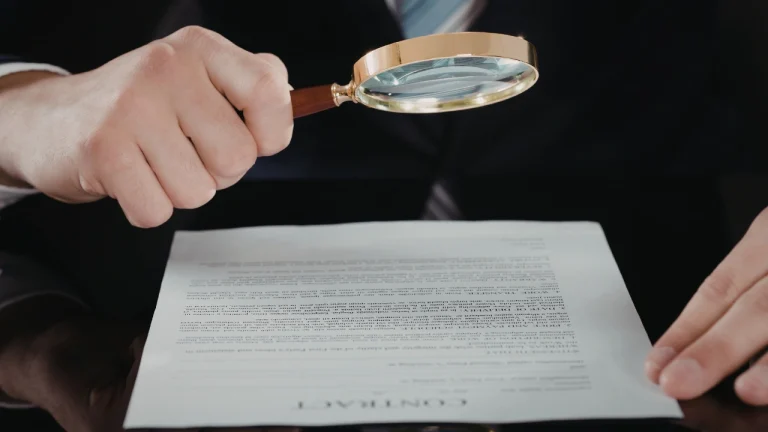Are you being Harassed by Great Lakes Processing Services?
Is Great Lakes Processing Services harassing you? If so, then you may not know that there are laws that protect you from Great Lakes debt collection harassment.
We understand that facing financial challenges and issues can sometimes be off-putting, but if you don’t understand how laws like the FDCPA and the FCRA work, you may end up facing Great Lakes debt collection harassment and losing out financially, not to speak about getting yourself deeper into financial trouble. Understanding your finance options and rights is crucial when dealing with debt collectors.
This article is aimed at helping you be informed enough to make the right choices if you are facing Great Lakes phone harassment or any other form of harassment from Great Lakes Processing Services. Some debt collectors may use aggressive sales tactics to pressure consumers into making payments.
Call the best team of consumer protection attorneys at (877)-700-57900) to help deal with your debt problems, know how to avoid losing your home and other valuables, and how to get justice for the harassment you have faced from debt collectors. You should keep a record of all contact details provided by Great Lakes debt collectors, including phone numbers and emails, for your records and any future legal action.
Who is Great Lakes Collection Agency?
According to their website, Great Lakes Processing services llc is a third-party debt collector located in New York. Compared to competitors in the industry, they emphasize their experience, strong market position, and reputation as a trusted partner in real estate development. Great Lakes Capital Management also operates as a private equity firm with expertise in real estate investments. Their main office is in South Bend, serving as the central hub for overseeing real estate development activities and coordinating operations across regional offices. The company serves a variety of industries, including real estate, finance, and more. GLC concentrates on several core asset classes within real estate development and investment, focusing on similar conforming product types such as mixed-use, multifamily, and industrial developments. Their property portfolio also includes significant retail spaces. Additionally, they utilize marketing strategies, including online advertising and targeted campaigns, to reach clients and promote their services.
Contact Information
Address:
556 S Transit St Ste B
Lockport, NY 14094-5933
Alternate Business Name
Great Lakes Capital Management, LLC
Better Business Bureau
Great Lakes Capital Management
Great Lakes Collection Agency Debt Collection Harassment Tactics
If Great Lakes Capital Management engages in any of the following tactics, you may have a case:
- Calls before 8:00 a.m. or after 9:00 p.m. or at any time or that they are given notice that it is inconvenient to call
- Talking to others about your debt
- Call the consumer’s place of employment if they have been advised that calls cannot be accepted at work.
- Use any profane language or any language that is harassing and abusive
- Engage in any conduct, the natural consequence of which is to harass, abuse or oppress.
- Make any misrepresentations of fact, such as how much is owed, or certain actions they may take to force payment
- Threaten arrest or criminal prosecution
- Send false information to the credit bureaus
- Cause a telephone to ring an unreasonable amount of times
It is important to note that team members bring diverse expertise to Great Lakes Capital Management, which can impact how debt collection is managed. Complementary skill sets ensure effective management of complex debt cases, and the energy and persistence with which some debt collectors pursue outstanding debts can be significant—making it crucial for consumers to understand their rights in such situations.
While some claim that GLC actively addresses the needs of their clients through tailored solutions, consumers should remain vigilant about their rights.
What if I already owe money to Great Lakes Processing Services LLC?
If you’re already in debt and your debt has either been transferred to or purchased by Great Lakes Processing services llc, then it is extremely important to not ignore the warning signs and to get help right away if you’re at the deep end of your debts, or worried that the money you earn will not be sufficient to get you out of your debt with Great Lakes Processing debt collector.
Another important point: don’t ignore your bills or letters that you receive about the money you owe to Great Lakes Processing. Doing this can be detrimental, as you may not realize when a default judgment has been leveled against you.
You can find out how to start paying your debts by speaking to a debt collection attorney at (877)-700-5790. You can also get help from a debt adviser.
It’s also worth speaking to Great Lakes Processing debt collector since you owe money to them, or they have been placed in charge of collecting your debt – they might be able to help by letting you pay smaller amounts gradually until your debt is fully paid.
The nature of bills is that they can cause you more financial problems if you don’t pay them or pay attention to them in terms of negotiating with your debt collector. The law also allows you to put your payments towards the resolution of a particular debt so you should strongly consider what bills you should pay first.
If you have lots of debts and find yourself in the deep end where you are struggling to pay your bills, there are things you can do to help yourself get out of the precarious situation you are currently in with Great Lakes collection agency.
The first and most common solution is to have a word with Great Lakes debt collectors. By speaking to them, you might be able to reach a fairground and arrange a way to pay them gradually, or make a formal agreement called a ‘debt solution’. You may also be able to negotiate deals or settlements with the company to resolve your debt for less than the full amount owed.
Depending on your situation, you will need to decide what the best solution is for your debts with Great Lakes collectors. It’ll depend on things like:
- the type of debts you have with Great Lakes collectors
- the total amount of debt you have
- how much money you have to pay to Great Lakes collection agency towards the settlement of your debts
If you have a stable source of income, then you can arrange to pay off your debts over a stipulated amount of time. By speaking to your debt collection agency, you might be able to get a repayment plan.
If you don’t have any money to pay your debts, there are still options that could help you. It is advised that you seek the expert opinion of legal counsel immediately by calling (877)-700-57900). By consulting with a debt attorney or adviser, you can gain valuable insights into your rights and the best strategies for managing your debt.
There are diverse debt management solutions and diverse debt solutions can have diverse effects on your financial life. For example, a debt relief solution like filing for bankruptcy might affect your credit rating, mortgage or savings, or restrict the benefits you can apply for. You should make sure you thoroughly understand how you’ll be affected before you apply for a debt solution, and this is why it is important to speak to a debt representation attorney.
If you need more help understanding the different options and their risks, you can contact the best team of consumer protection attorneys at (877)-700-57900).
The Importance of Documentation
In the world of real estate development and private equity, documentation is the backbone of every successful project and investment. For a market leader like Great Lakes Capital, meticulous documentation is not just a best practice—it’s a necessity that underpins every aspect of their operations across the real estate spectrum. Whether managing new development, redevelopment, or value-driven real estate investments, the firm’s commitment to comprehensive record-keeping ensures that each project is planned, managed, and delivered effectively.
Great Lakes debt collector operates throughout the capital structure, focusing on several core asset classes such as mixed use, multifamily, industrial, and medical office properties. In these diverse and often complex markets, having full access to accurate data and detailed documentation allows the Great Lakes collection agency team to make informed decisions, manage risk, and deliver compelling real estate solutions that meet the evolving needs of their clients and tenant partners. This approach is further strengthened by the team members’ broad spectrum of experience and complementary skill sets, which ensure that every aspect of a project is analyzed and executed to the highest standards.
The firm’s operating offices in South Bend, Fort Wayne, and Indianapolis are strategically located to serve the greater Midwest region, providing direct access to key decision makers and enabling Great Lakes debt collector to remain uniquely positioned in a competitive market. Through robust documentation practices, the company maintains transparency and trust with investors, companies, and other stakeholders, reinforcing its reputation as a trusted partner in private equity and real estate management.
Documentation is especially critical in supporting the firm’s opportunistic investment strategies and speculative development meeting the unmet demands of the market. By leveraging advanced tools and technologies for data management, Great Lakes collector can identify new opportunities for growth, monitor project progress, and ensure that assets are managed securely and efficiently. This forward-thinking approach not only supports compliance with legal and regulatory requirements but also provides a historical record that is invaluable for future planning, auditing, and strategic decision-making.
As Great Lakes debt collector continues to expand its portfolio and engage with new investors and tenant partners, the importance of documentation will only increase. By prioritizing thorough and accurate record-keeping, the firm is able to deliver greater value to its clients, maintain security and reliability in its operations, and stay ahead in a rapidly changing industry. In every aspect of real estate development and investment, from multifamily and industrial projects to mixed use and medical office spaces, documentation forms the foundation for sustainable growth and long-term success.
In summary, the complementary skill sets of the Great Lakes collection agency, combined with a partnership approach and a commitment to excellence in documentation, ensure that every project is managed with integrity and professionalism. This dedication to best practices not only benefits the firm’s clients and investors but also solidifies Great Lakes Capital’s standing as a leader in the real estate development and private equity sectors throughout the greater Midwest and beyond.
CONSUMER RIGHTS LAW FIRM, PLLC
Consumer Rights Law Firm, PLLC is a law firm that specializes in helping clients who are facing harassment from debt collectors. If you suspect that your debt collection rights are being trampled upon, contact our office to begin the process to stop the harassment you may currently be receiving from Great Lakes Capital Management
Our office has been assisting consumers since 2010, and we have an A+ rating with the Better Business Bureau.
Call us at (877)700-5790 for immediate assistance.
Check out the links below for more information:
https://consumer.ftc.gov/articles/debt-collection-faqs
FAQs
Who is Great Lakes Processing Services and why are they calling me?
Great Lakes Processing Services LLC is a third-party debt collector based in Buffalo, NY, acting on behalf of creditors to recover outstanding debts.
Is Great Lakes Processing Services harassing me with these calls?
If the agency is calling multiple times a day, at odd hours, using threats, or ignoring your stop requests, this may amount to debt collection harassment under the FDCPA.
How many times can Great Lakes Processing legally call me?
There is no specific number, but consistently calling more than 7 times in 7 days or within 7 days of a conversation may be considered harassment.
Are calls before 8 a.m. or after 9 p.m. allowed?
No, the FDCPA restricts debt collection calls to between 8 a.m. and 9 p.m. in your time zone.
Can they threaten me with arrest or wage garnishment?
No, debt collectors cannot threaten legal action they don’t actually intend to take. Such threats are illegal under the FDCPA.
Can Great Lakes Processing share my debt details with others?
No, they cannot disclose your debt to family, friends, or coworkers. Doing so violates your privacy rights under federal law.
What are my rights if I dispute the debt?
You must send a written dispute within 30 days of first contact. They must verify the debt before continuing collection; failure to do so may violate the FDCPA.
Can I make them stop calling me?
Yes — Submit a written cease-and-desist letter. They must stop contacting you except to confirm receipt or inform you of legal action.
Can I file a complaint or sue Great Lakes Processing for harassment?
Yes — You can file complaints with the CFPB, FTC, and your state attorney general. You may also sue under the FDCPA for up to $1,000 plus fees for violations.
What documentation should I keep if they keep calling?
Document each call—date, time, content, number called from—and save voicemails if any. This record can support legal claims or complaints.







